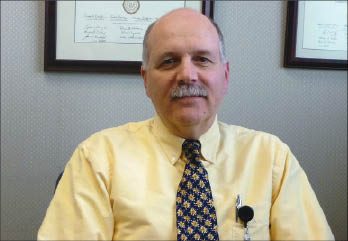
Home » Research links symptoms of depression, cardiac death
Research links symptoms of depression, cardiac death
Heart doctors here are cautious about findings, say more study is needed

March 26, 2009
Heart doctors here say a new study that found a link between symptoms of depression and cardiac death among women is interesting, but more research needs to be done before firm conclusions can be made about that correlation.
Women, meanwhile, should continue to take their antidepressant prescriptions, they say.
Researchers at Columbia University Medical Center, in New York, and Brigham and Women's Hospital, in Boston, say they discovered the correlation between cardiac death and symptoms of depression in a study of 63,000 women who were all nurses.
Specifically, they found that women with severe symptoms of depression or those who reported taking antidepressants were at risk for sudden cardiac death, in which someone drops dead with minimal warning, presumably from an electrical problem with the heart.
Researchers also found that women with severe symptoms of depression or those who reported taking antidepressants were at risk for fatal coronary heart disease, in which plaque builds up inside the coronary arteries, causing a blockage of blood to the heart and death.
In particular, women with clinical depression were more than twice as likely to experience sudden cardiac death, the researchers say, and they add they were surprised to find that risk was associated more strongly with antidepressant use than symptoms of depression.
The study, however, was targeted only at female nurses, rather than the general population, and the findings of the correlation between symptoms of depression and cardiac death weren't a focus of the study.
"What you don't want to do is send out to the public that they should avoid antidepressants," says Dr. Michael E. Ring, medical director of Providence Sacred Heart Medical Center's line of cardiac services. "This link will need to be explored further and confirmed with further studies."
Given that the occurrence of sudden cardiac death in the study was extremely small, on the order of less than one per year among several thousand study subjects, the study's authors recommend people not stop taking their antidepressant medications at this time, he says.
"By no means is this study going to lead to a massive change," Ring says.
Dr. Harold Goldberg, a partner at Spokane Cardiology and medical director of electrophysiology at Deaconess Medical Center here, says the researchers' findings are "cautionary, and now is not the time for a call to arms for people to stop their antidepressants. There could be more harm in stopping antidepressants at this present time."
Goldberg adds, "They need to do larger studies and to try and tease out the relationship of severe depression alone to cardiac events, versus use of antidepressants as a potential cause or contributing factor to cardiac events." Cardiac events, in this case, refer to heart attacks and sudden cardiac death.
The idea that women with clinical depression were more than twice as likely to experience sudden cardiac death is provocative to think about, but other risk factors for that to happen, such as lifestyle, diabetes, and obesity, need to be looked at further, he says.
Also, Goldberg says, the study didn't look at issues related to whether study subjects were following instructions when taking medications to treat underlying medical conditions known to be associated with cardiac events.
"We need to look further at the applicability of this study to the general population," says Goldberg. "It is not yet known what that applicability is, as this study looked at a particular population group, predominantly relatively healthy Caucasian females who were the predominant population in a nurses' health study."
At this point, he says, "We just know that we need to be making certain that our patients with depression are aggressively treated for medical conditions that we know lead to heart disease, and that we await additional studies in the future."
Goldberg adds, "We have to pay attention to the fact that depression itself has an increased association with medical problems," such as obesity, diabetes, and hypertension, all of which contribute to the cardiac events covered in the study, he says.
Dr. William Whang, of the cardiology division at the Columbia University Medical Center, who led the team study, emphasizes the relationship between antidepressant medicines and sudden cardiac death merits further investigation, and the benefits of taking appropriately prescribed antidepressants outweigh the risk of sudden cardiac death.
"We can't say antidepressant medications were the cause of the higher risk of sudden cardiac death," he says.
Whang says the data raise more questions about the mechanisms by which depression is associated with arrhythmia, or irregular heartbeat, and cardiac death.
Overall, the study findings reinforce the need for patients with depression to be monitored closely for risk factors for coronary heart disease, he says, adding that management of these risk factors can reduce the risk of sudden cardiac death and mortality from coronary heart disease.
"It's important for women with depression to be aware of the possible association between depression and heart disease," and to work with a doctor to manage risks, he says.
Sacred Heart's Ring says, "I think you have to take this data with a grain of salt. Sometimes when you do have one study that demonstrates an association or a possible link, it may not be confirmed in other studies."
The study is valuable in that it brings attention to a potential problem that may not have been apparent previously, Ring says.
Latest News
Related Articles



